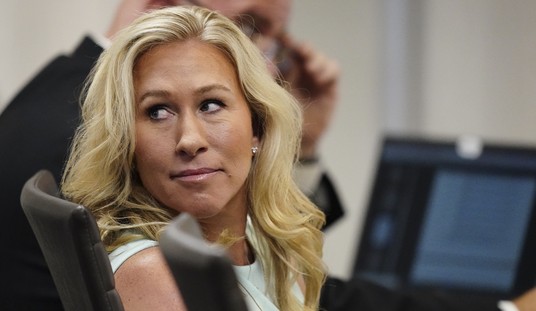As usual, I liked Kevin D. Williamson’s piece at NRO today on the real drivers of federal deficits (hint: not tax cuts, not wars, not bailouts). Among several gems, he comes up with this one, on the effects of government control of economic sectors:
The only important products in the United States that do not get better and cheaper every year are K–12 education and health care, which are about 97 percent and 55 percent dominated by the government, respectively, and therefore have little consumer-price pressure.
I would have said health care was more like 75% dominated by the government, but the point is the same, and extremely well made. He says this too, however:
A study from Credit Suisse puts the net value of all the financial assets in the world (excluding real estate) at about $80 trillion ($117 trillion in financial assets minus $37 trillion in household debt). Our unfunded entitlement liabilities are about $100 trillion. Given that they exceed world financial wealth, I suspect that those liabilities are not going to be met.
This is where I have to part company with him – and with, as far as I can tell, at least three quarters of the commentators who write about these things. There’s an obvious reason to criticize his conclusion: current global wealth, tallied up in a snapshot of 2011, is not what we will have available in the future, when America’s unfunded obligations come due. Those $100 trillion in unfunded entitlements will come due over time. They are projected out for decades; we don’t have a $100 trillion bill coming due tomorrow.
But this factor isn’t my main reason for disagreement. It does, however, highlight the basis for my rejection of the widespread, pessimistic conclusion that, basically, we’re doomed.
Before getting into that, let me clarify that I take the deficit problem seriously, and I don’t think we can postpone dealing with it. Same goes for the unfunded entitlements problem. Suppose, just for discussion purposes, that the $100 trillion facing us right now came due in increments of $1 trillion a year for the next century. The government is already spending over $1 trillion more per year than it’s getting in tax revenues. We obviously can’t handle another $1 trillion per year. There’s no question this has to be dealt with – now.
And we do need to cut current discretionary spending and reform Social Security and Medicare. We need to reform unearned benefits programs too: Medicaid, welfare, food stamps. All these reform measures are indispensable.
But cutting expenditures is only half the equation. If we only cut expenditures, we will be leaving ourselves inside a box of our own making – accepting a “pie” whose maximum size has been dictated to us by decades of government policies, and proposing only to cut everyone a smaller slice.
This is quite possibly the most stupid, shortsighted, inexcusable thing we could do, as we stand at the parting of the ways in 2011. The world could have so much more wealth, in the next 50 years, than projected by the Credit Suisse study, if its people were allowed by the government policies on seven continents to produce and profit according to their interests and abilities.
Policies are holding people back in numerous ways, from the endless terrible tribal wars in Africa to the repressions of Islamism and sclerotic statism in much of Asia and Europe. Consider the millions of young, able people living on government benefits in the Western nations. Instead of producing, sustaining themselves, enriching their communities and nations, and – yes – paying taxes, they are idled resources.
Millions more are recently unemployed and looking for work – people who would resume their status as producers again tomorrow, if they had the chance. Government policies bear a huge portion of the blame for putting them out of work; and they, again, are idled resources.
How many now are only marginally fit for productive work because they are graduates of the American public school system? They are accomplished at regurgitating propaganda, but have not been trained to think critically, and have little experience with challenge, failure, and perseverance. Too many younger Europeans, Canadians, Australians, etc fall into these categories as well. Almost all young people blossom as producers and grow in sturdiness and character, if they are set the right example, given better principles, and required to perform. But we have turned too many of them into underemployed resources.
How many people around the globe – some of whom are the unemployed, no-longer-looking-for-work in the US – would start small businesses and add to the sum total of productivity and wealth, if the obstacles of regulation and taxes were not so steep? In how many nations would the economy take off like a rocket if real property laws were fair and better codified? If bureaucratic corruption and sloth were reduced?
Granted, there is only so much we can affect outside our own borders. But in terms of affecting foreign-government policies through our example, we are headed the wrong direction: making it too expensive to do various kinds of business here, increasing the size of the entitlements state, and closing off economic sectors with regulation.
Consider that we would have enormous additions to our national wealth, kicking in with a vengeance 3-5 years from now, if we would simply drill for oil and gas where government decisions now prohibit doing so, improve our indigenous refining capacity, resume a friendly regulatory attitude toward coal, and allow the development of tar sands and shale oil.
The US has millions of acres of federal land that could be sold and put to productive use – and we could sell millions and still have millions left for conservation. I’m not a dyed-in-the-wool libertarian in this regard; if it were up to me, I would continue to retain some lands under federal administration, and I wouldn’t sell off public land to foreign interests. American buyers only (well, OK, maybe Canadians too), and I mean checking IDs and doing forensic investigations of business relationships. But the point is that these lands are idled resources – or, in some cases, resources that can be idled at any time, on the whim of a federal judge and at the behest of activists.
It’s worth noting that there are tremendous tracts of productive land, all over the face of the earth, that have yet to be put under cultivation or set to organized human use. Trillions in wealth is sitting unclaimed under our feet.
None of this means that we should have no regulation at all. It is sophomoric to react as if that’s what I am proposing. But one of the best resets we could give ourselves is eliminating the regulatory discretion of federal and state agencies. Any form of regulation that will affect business costs, economic viability, and consumer prices – and virtually all of them do – should properly be imposed only if a majority in the legislature agrees, point by point and regulation by regulation. This will make it harder to impose regulations, yes. Exactly.
The ways in which regulatory clamps on productivity keep our resources idled pervade every facet of society and the economy. We have got to start recognizing this regulatory straitjacket for what it is, and realize that the reason we don’t expect to have the $100 trillion we need over the next 70 years is that we insist on constraining ourselves by a network of rules that idle our resources. (And, for that matter, divert them into compliance activities, which is an entire post of its own.)
Yes, reform entitlements. That absolutely must be done. We’ll be better off if our entitlements burden is whittled down as far as possible, and I don’t think cutting it by 90% is too much to shoot for. But the way we get there, politically as well as practically, is by unleashing the productivity of the people and letting them decide what to do with their wealth. A people that is providing very nicely for itself will not miss the $90 trillion the US federal government was never going to be able to “transfer” to it anyway. And we’ll be better off for every foreign economy and every foreign citizen whose governments’ policies allow them to journey down the same path.
J.E. Dyer blogs at The Green Room, Commentary’s “contentions” and as The Optimistic Conservative. She writes a weekly column for Patheos.
This post was promoted from GreenRoom to HotAir.com.
To see the comments on the original post, look here.







Join the conversation as a VIP Member